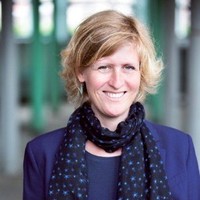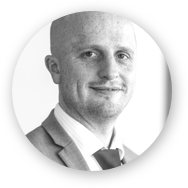ARTICLE
What shape do we want ouR future agriculture to have?
Reflecting on the
consequences of
innovation
One of the central questions in the IoF2020 project is how to handle data. Who owns the data collected through sensors on the contractor’s harvesting combine? Who should have access to raw data or to processed data? Under what conditions? The farmer, the contractor, the combine manufacturer? Government, retailers, consumers, banks, insurance companies? Each answer leads to a different possible future, each with their own pros and cons. Reflection about these futures have an ethical dimension: what is a desirable or acceptable future? Simone van der Burg leads the new work package 6 on ethics. Since March this year, she and her colleagues Marc-Jeroen Bogaardt and Elsje Oosterkamp investigate the different possible futures and their implications for all stakeholders in the food chain.

Simone van der Burg,
Senior researcher Responsible Research and Innovation
Wageningen economic Research, WUR, the Netherlands

Kristof Mertens
Business Chair in the IoF2020 meat trial
Two lines of research
‘What we do, is to broaden and deepen the discussion on the possible futures that we are building when using new technologies. You could say that we offer the tools and the vocabulary for reflection on the future, even though it isn’t here yet.’ To do so, WP 6 follows two lines of research. ‘On the one hand, we provide input to the questions raised in the introduction. What are the preconditions to share data between the stakeholders around a smart farm? We don’t necessarily provide an answer, but we investigate the implications of all the possible answers. So that we can compare these possible futures and have a discussion on what’s desirable. This helps the actors responsible for the innovation to make more informed decisions during the design process. On the other hand, we support the Use Cases directly when they experience ethical questions. With information and examples of similar cases. In case of a more difficult problem, we may interview the different actors in the issue at hand to explore their views of the problem. And we help them to run a fruitful discussion to get to a solution.’
Enriching the discussion
I’m quite happy to see the reactions of the partners within IoF2020 on our work. We started interviewing stakeholders around IoF2020, to get an overview of all the possible ways to handle data in the future. We also investigated how other sectors approach this question. Health care for example has already broad experience in sharing patient data. In Denmark data management is a government task. We share our findings in various workshops, such as the ‘Ethics in data management’ workshop we organise during the IoF2020 partner event next year. Sometimes people fear that we ethicists only point our fingers in warning. But our work helps to enrich the discussion about the consequences of innovation. Frequently, we see that it broadens the reflection of innovators on their work as well.’
‘Sometimes people fear that we ethicists only point our fingers in warning. But our work helps to enrich the discussion about the consequences of innovation.’
Possible futures
‘The use of technology changes the role of the farmer, no doubt about it. You can imagine that the use of digital technology enables farmers to organise their business differently and develop new collaborations. How about a cooperation of farmers who communicate directly with nearby consumers when products are ready? Or a cow being slaughtered only when 80% of its meat is sold? In greenhouse horticulture, the use of digital technology is already more common. There, we see that businesses professionalize, attracting employees specialized in technology, sales, human resources, and business management. Contrary to dairy farming for example, where most farmers are still generalists.’
Next steps
‘I’m convinced that we need to keep the grand societal challenges actively on the agenda. The project’s overall goal is to provide safe and healthy food with a minimum negative effect on the environment. Internet of Things technology promises higher efficiency and less environmental impact. But it doesn’t do so all by itself. We need to consider the human factor too. New technology can have unexpected counterproductive effects, depending on how people use it. So rules and guidelines are important. Based on the results of our research, we will reconsider existing rules and codes of conduct, such as the one offered by Copa Cogeca. Maybe it needs a revision, or perhaps a governance model needs to be added. We don’t know yet. I’m curious to see where this work will lead us and I’m quite proud of the enthusiasm in the use cases so far.’
Would you like to learn more about WP6’s research so far? Simone van der Burg will share here expertise both at the SmartAgriHubs Kick off Conference and at the IoF2020 Partner Event:
5 March 14.30 – 15.30 Ethics of Data Governance
5 March 15.30 – 16.30 Ethics of Data Governance
7 March 16.30 - 17.30 Ethics of Data Governance